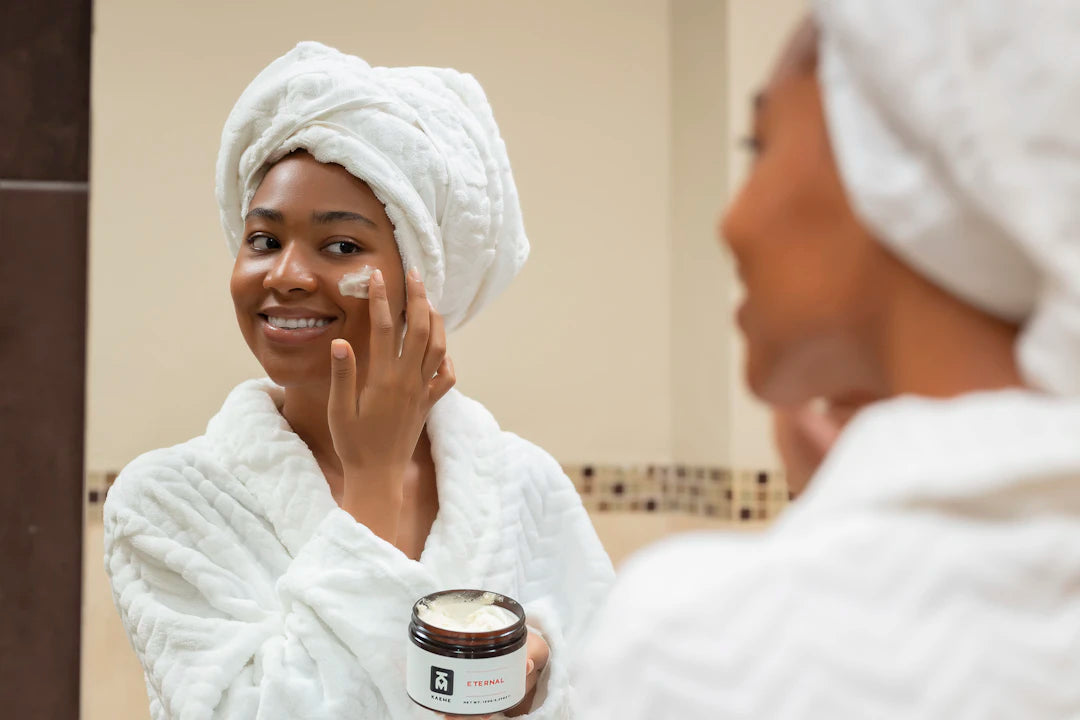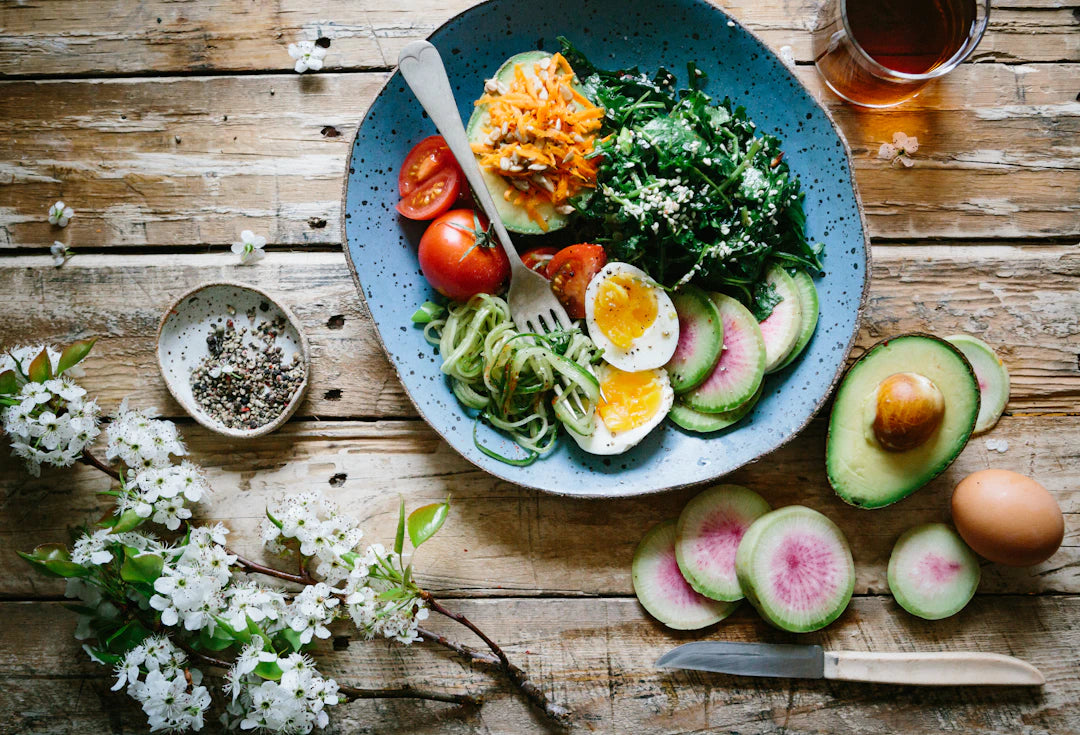Crafting Your Own Beauty: A Guide to DIY Skin Care for Radiant Skin

In a world where self-care reigns supreme, the lure of DIY skin care has captivated many. Making your skin care products at home not only allows you to customize your regimen but also empowers you to know exactly what goes on your skin. Today, we're exploring safe practices for formulating your own skin care products while enhancing your skin care routine with the use of retinol cream, antiaging ingredients, and more.
The Allure of DIY Skin Care
Creating your own skin care formulations can be an alluring venture. It taps into your creativity while simultaneously offering enhanced control over what you're applying to your skin. This freedom can help you target specific skin concerns such as wrinkles, sagging, and discoloration. But with this power comes responsibility. Understanding safe practices is crucial to ensuring your DIY skin care initiatives yield positive results.
Why Choose DIY?
There are various reasons to embark on a DIY skin care journey:
- Customization: You can tailor formulations to your specific skin needs, whether you're looking for skin tightening, anti-wrinkle solutions, or hydrating serums.
- Natural Ingredients: Many store-bought products contain synthetic chemicals. Making your own ensures you know the source of your ingredients.
- Cost-Effective: Creating products at home can be more economical than purchasing high-end skin care items.
Essential Ingredients for DIY Formulations
Successful formulations start with quality ingredients. Here are some essential components you might consider including in your DIY skin care:
Botanical Oils
Natural oils like jojoba, coconut, and avocado oil are excellent for moisturizing and nourishing the skin. They can serve as a carrier for various active ingredients, ensuring a smooth application.
Essential Oils
Incorporating essential oils can provide various benefits based on their therapeutic properties. For instance, lavender is renowned for its calming effects, while tea tree oil is celebrated for its antibacterial qualities.
Active Ingredients
Your formulations can also benefit from active ingredients such as:
- Alpha Hydroxy Acids (AHAs): Excellent for exfoliation and promoting cell turnover, perfect for anti-wrinkle effects.
- Vitamin C: A powerful antioxidant that can brighten the skin and help combat signs of aging.
- Retinol: A star ingredient for antiaging; it’s known to encourage cell turnover and improve skin texture.
Safe Practices for DIY Skin Care
While the DIY approach can be fun and beneficial, safety should always come first. Here are some essential practices to keep in mind:
Patch Testing
Before applying any homemade product to your face, it’s crucial to conduct a patch test. Apply a small amount of the formulation on a discreet area of skin, preferably on the inner wrist or behind the ear, and wait 24 hours. This can help you identify any allergic reactions or sensitivities.
Using Clean Equipment
Make sure all tools and containers you use in your formulation process are clean and sanitized. Impurities can lead to contamination, spoilage, or unwanted reactions when applied to your skin.
Storage Considerations
Homemade products often lack preservatives, making them susceptible to bacterial growth. Store your creations in dark, cool places, ideally in glass containers, and always check for any changes in smell, color, or texture before use.
Creating Effective DIY Skin Care Recipes
Let’s explore a few simple recipes you can incorporate into your skin care routine, focusing on achieving skin tightening and anti-aging effects.
Homemade Retinol Serum
To harness the benefits of retinol at home, you can create a basic serum using:
- ½ cup of carrier oil (like rosehip or argan oil)
- 15 drops of retinol oil
- 5 drops of your favorite essential oil for aroma
Mix the ingredients in a dark glass bottle. Apply a few drops at night after cleansing your face. Always follow with sunscreen during the day, as retinol can increase sun sensitivity.
Natural Anti-Wrinkle Cream
This rich cream helps keep the skin hydrated while delivering powerful anti-aging benefits:
- 2 tablespoons of shea butter
- 1 tablespoon of coconut oil
- 1 teaspoon of honey
- 5 drops of lavender essential oil
Melt the shea butter and coconut oil together, then mix in the honey and essential oil. Allow to cool and solidify, then apply to the face and neck, focusing on areas prone to wrinkles.
Perfecting Your Skin Care Routine
Incorporating DIY products into your skin care routine can energize your regimen. Here’s how to ensure a balanced approach:
Cleanse
Start with a gentle cleanser to remove impurities and prepare your skin for treatment.
Treat
Apply any serums or treatments, such as your homemade retinol serum or anti-wrinkle cream, which can deeply nourish and target specific skin concerns.
Moisturize
Seal in hydration with a quality moisturizer, ensuring your skin feels hydrated and nourished throughout the day.
Protect
If you're stepping out during the day, don’t skip the sunscreen. This crucial step protects against UV damage and prevents premature aging.
Common Mistakes to Avoid in DIY Skin Care
While creating DIY products can be rewarding, certain pitfalls can lead to less-than-ideal results. Here are some mistakes to avoid:
Overcomplicating Formulations
Less is often more. Simplicity can lead to effective and easier-to-manage products. Don’t feel the need to incorporate too many ingredients at once.
Neglecting Shelf Life
Without preservatives, your DIY products have a limited lifespan. Always keep track of when you made a product and adhere to safest use guidelines.
Ignoring Your Skin Type
Different skin types respond differently to various ingredients. Make sure to tweak your recipes based on your unique skin needs.
Join the DIY Skin Care Revolution!
In your quest for beautiful, youthful skin, DIY skin care offers an avenue that is both creative and empowering. With the right ingredients and practices, you can develop products that not only cater to your skin’s needs but also enhance your overall skin care routine.
As you embrace the world of handmade skin care formulations, remember to prioritize safety, simplicity, and your skin's unique needs. Your journey into DIY skin care can be incredibly satisfying, allowing for both personal expression and the joy of self-care.
Now is the perfect time to ignite your passion for DIY skin care. With the knowledge and recipes shared in this guide, you’re equipped to take action. So, roll up your sleeves and start mixing; just remember, your skin’s health should always take center stage!


